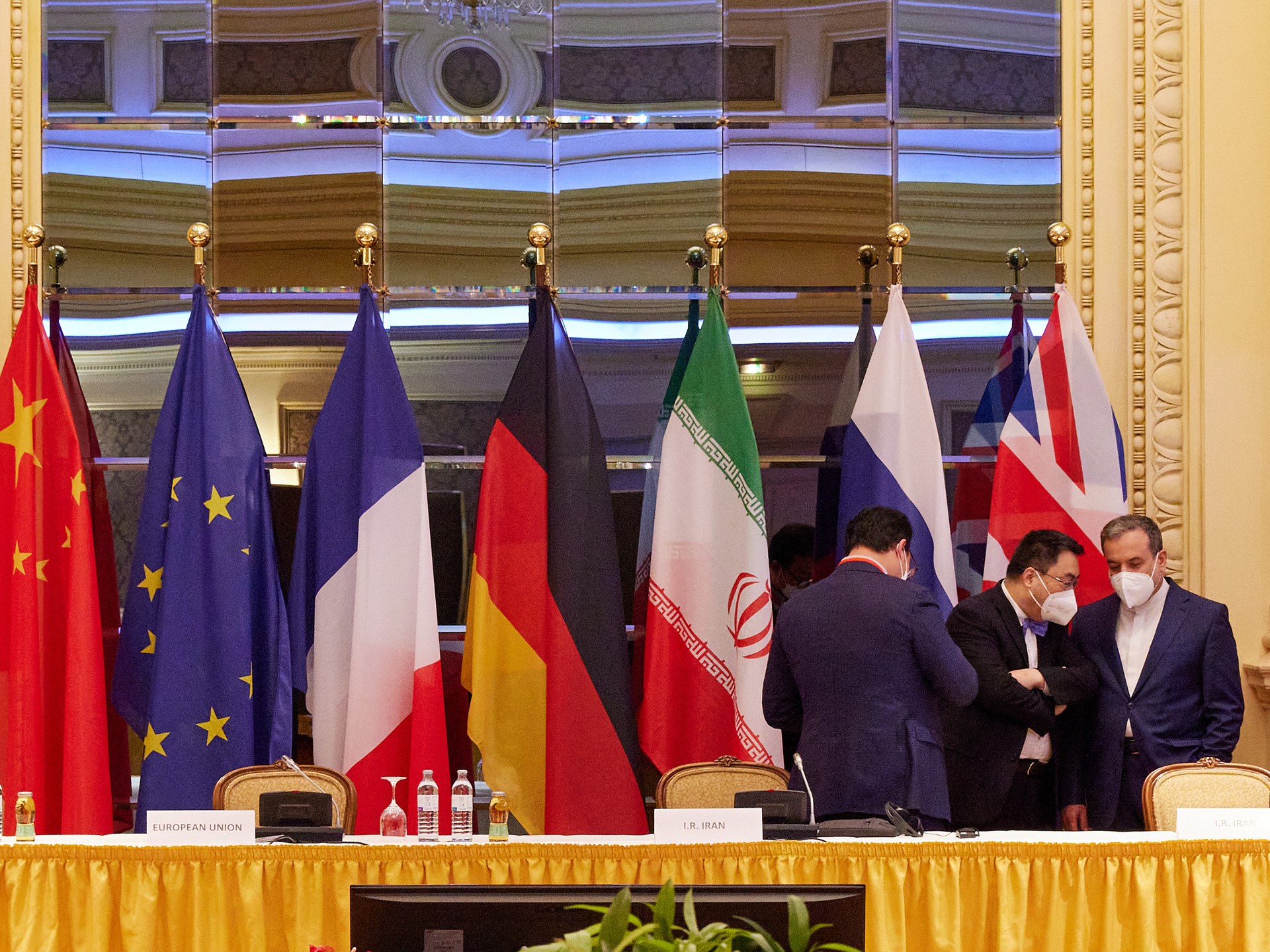France, Britain and Germany said that Iran's recent positions do not comply with its international obligations, and raise serious doubts about its intention to return to the nuclear agreement, while an Iranian official said that European countries are obeying the policies of those occupying the White House.
The three countries accused Iran of opening separate issues related to its international commitments, at a time when negotiations were close to concluding a nuclear agreement.
She added - in a joint statement - that the final European text on returning to the nuclear agreement included maximum flexibility, and that Iran chose not to seize a decisive diplomatic opportunity, and continued to escalate its nuclear program.
"Unfortunately, Iran has chosen not to take advantage of this crucial diplomatic opportunity," the three countries said in their statement, noting that Tehran "instead continues to escalate its nuclear program beyond any reasonable civilian justification."
Tehran has re-established issues related to its legally binding commitments under the Nuclear Non-Proliferation Treaty, which was reached with the International Atomic Energy Agency.
The three countries stated that "this latest request raises serious doubts about Iran's intentions and its commitment to reaching a successful outcome with regard to the Joint Comprehensive Plan of Action."
Iranian objection
For his part, the adviser to the Iranian negotiating delegation, Muhammad Marandi, said that his country was not the party that violated the nuclear agreement and left it.
Marandi added that Iran realizes that without a tight agreement and an end to the false Western accusations, any agreement will fail, saying that European countries obey the policies of those who occupy the White House.
The statement of the three European powers comes a day after US Secretary of State Anthony Blinken confirmed that Iran's latest response to the issue of reviving the nuclear agreement represents a step "backward."
"We are not about to agree to an agreement that does not meet our basic requirements," he added.
The 2015 agreement between Tehran and 6 international powers (Washington, Paris, London, Moscow, Beijing, and Berlin) allowed the lifting of sanctions on Iran in return for reducing its nuclear activities and ensuring the peace of its program.
But the United States withdrew from it in 2018 under its former president, Donald Trump, re-imposing sanctions on Iran, which responded by beginning to gradually retreat from most of its commitments.
Hopes were raised about the possibility of reviving the agreement under President Joe Biden, who supported it.

